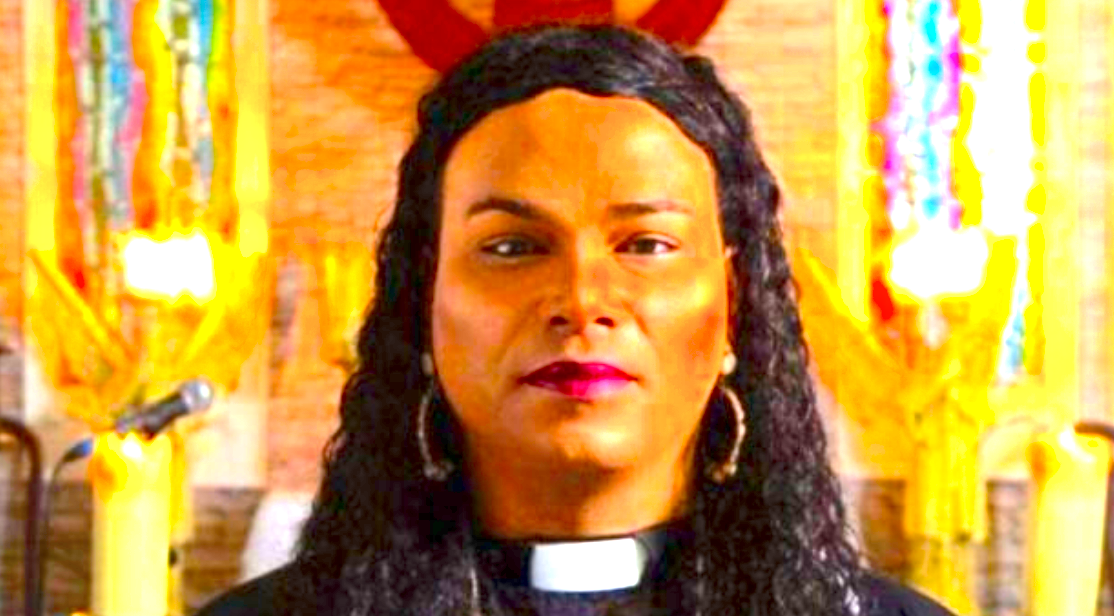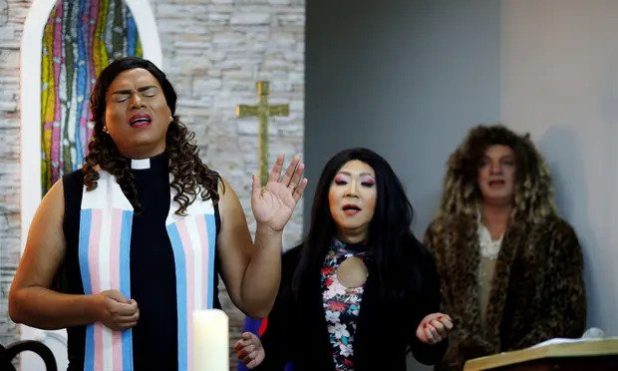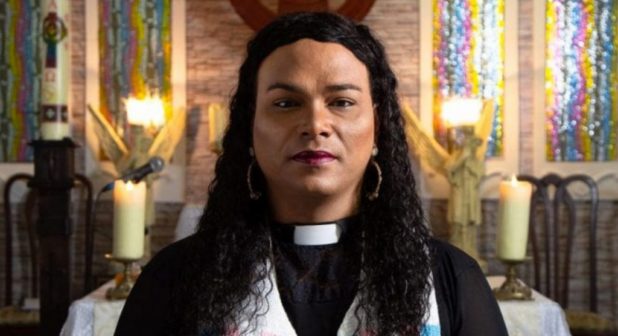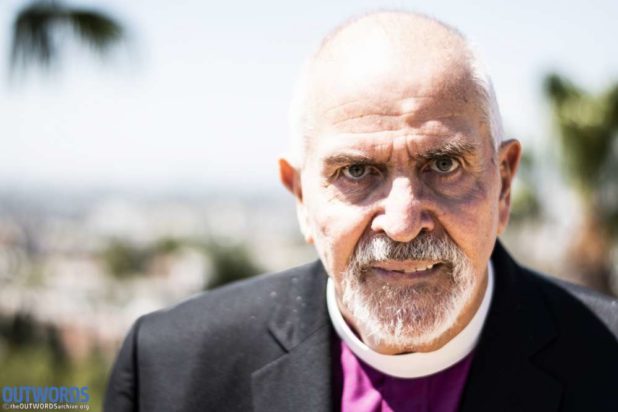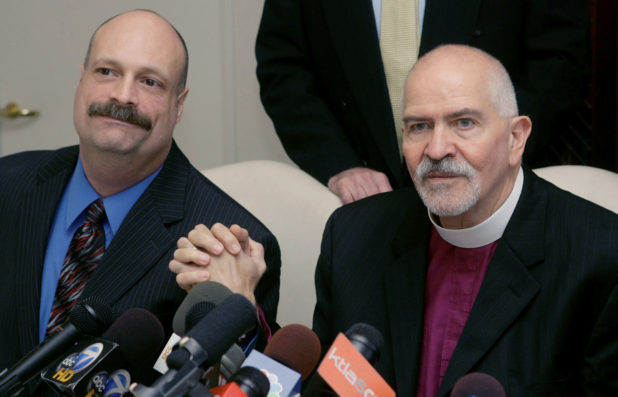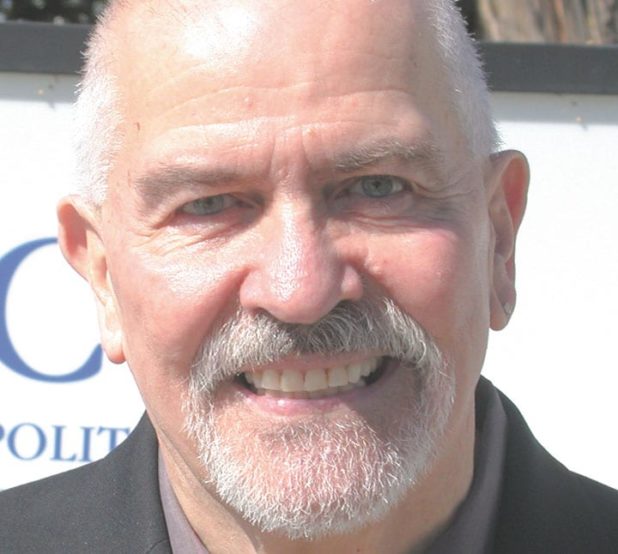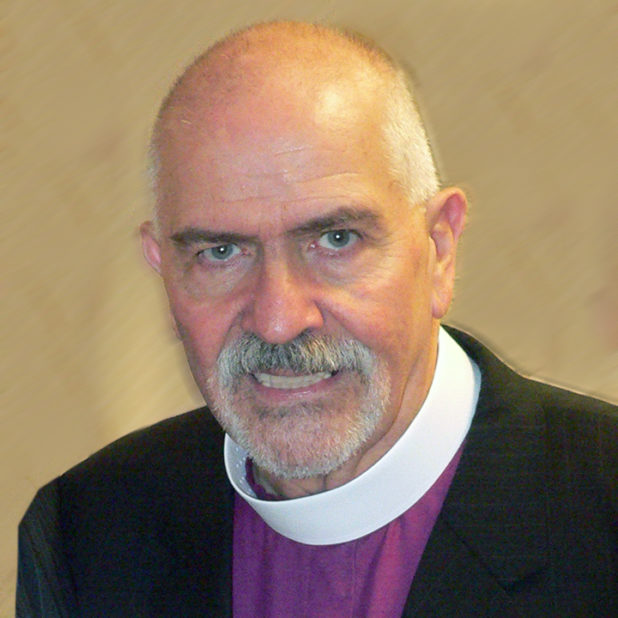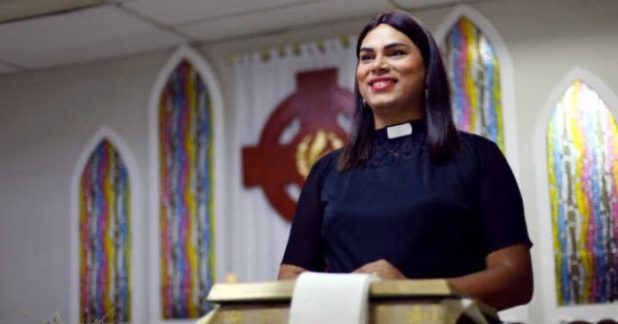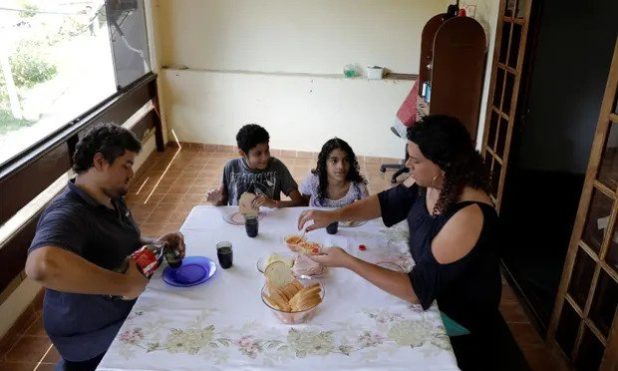Alexya Lucas Evangelista Salvador is a remarkable woman. In her early life, she was a man. Now she’s both Brazil’s first tranny pastor, and the first trans woman in the country to have ever adopted kids.
Desperate calls from LGBTQ+ youths contemplating suicide or from their parents after they have made an attempt on their lives often punctuate Alexya Salvador’s day. When they do, she drops everything to talk.
As a transgender woman, she recognises the anguish in their voices. “I feel their pain in my body because I went through this,” she says. “My family went through this.”
As the first transgender reverend in Latin America at the Metropolitan Community Church (MCC), she hopes she can use her faith to help. She understands the struggle to reconcile religion and identity, especially in Brazil, where Christianity reigns and the church is often far from a safe space for those who are LGBTQ+.
But Salvador wants to change that. Long before she became a pastor, it was her faith that provided her with solace and strength. Now, it’s also a way for her to give others in her community the support they need.
While part of her role is to preach at church services, what she finds most rewarding is talking to those who come to the MCC, finding out what they need – be it spiritual guidance or a hot meal and a safe place to sleep – and making sure they get it.
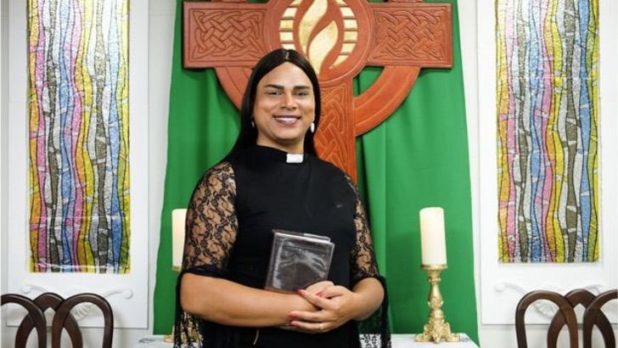
When she was young she wanted to join the priesthood – it would be years before she would transition or even realise she was a woman – and joined a seminary. She also liked attending events put on by the charismatic Catholic community known as Canção Nova, which has a TV channel that broadcasts Catholic programming across Brazil. But it was there, she says, that she realized “this environment was toxic for me.” The comments about LGBTQ+ people being “an abomination” were too much.
The priesthood, she decided, was not for her. After leaving the seminary, Salvador continued to attend church and participate in its activities; she still loved teaching and singing during Mass.
“I said to myself, ‘I’m not Catholic anymore, I don’t want to serve the Christian faith anymore because it’s a faith that oppresses me,’” she says. “I severed ties with the institution, with the church, but never with my faith in God, in Jesus.”
A year and a half later, a Google search led her to the MCC. Founded by the Rev Troy Perry in Los Angeles in 1968, the church prides itself on being a welcoming and affirming ministry to those who identify as LGBTQ+. When Salvador and her now-husband Roberto decided to see how they could get married as a gay couple, they discovered that the MCC had a church in São Paulo.
This is Troy Perry:
As you can see, he doesn’t have an evil look in his eyes – at all.
This is perfectly good and normal and so on.
In June 2010, they were one of 12 LGBTQ+ couples married by the church in a group wedding.
They started attending Sunday services at the MCC, and found a community there that made them feel welcome. But Salvador was struggling. She knew that she was transgender and was terrified that telling Roberto would mean losing him.
But Roberto stood by her, supporting her as she started hormone therapy, replaced her wardrobe and changed her name.
“It was like he did this transition too,” she says.
Along with Roberto, it was the MCC that gave her the strength to tell her parents, colleagues and students about her transition. When she was invited to become a deaconess, she readily accepted.
“The panic that lived in my head until I discovered the MCC was that I would go to hell, that I was God’s mistake,” she says. “While studying theology, I learned that I have flaws like all humans do, but being a trans woman is not one of them.”
With her first dream now a reality, Salvador’s second became her focus. The oldest of three siblings, she had always wanted to have three children of her own. Once again, she and Roberto turned to Google. They found out she would be the first trans woman in Brazil to adopt.
It took six months for the judge to say yes. The process was not easy, and Salvador knew it would involve facing transphobia, but she now has a son and two transgender daughters.
Kids adopted by this tranny are also trannies, huh?
What a remarkable coincidence. What are the odds?
It’s almost as if these degenerates reproduce by being allowed near kids.
